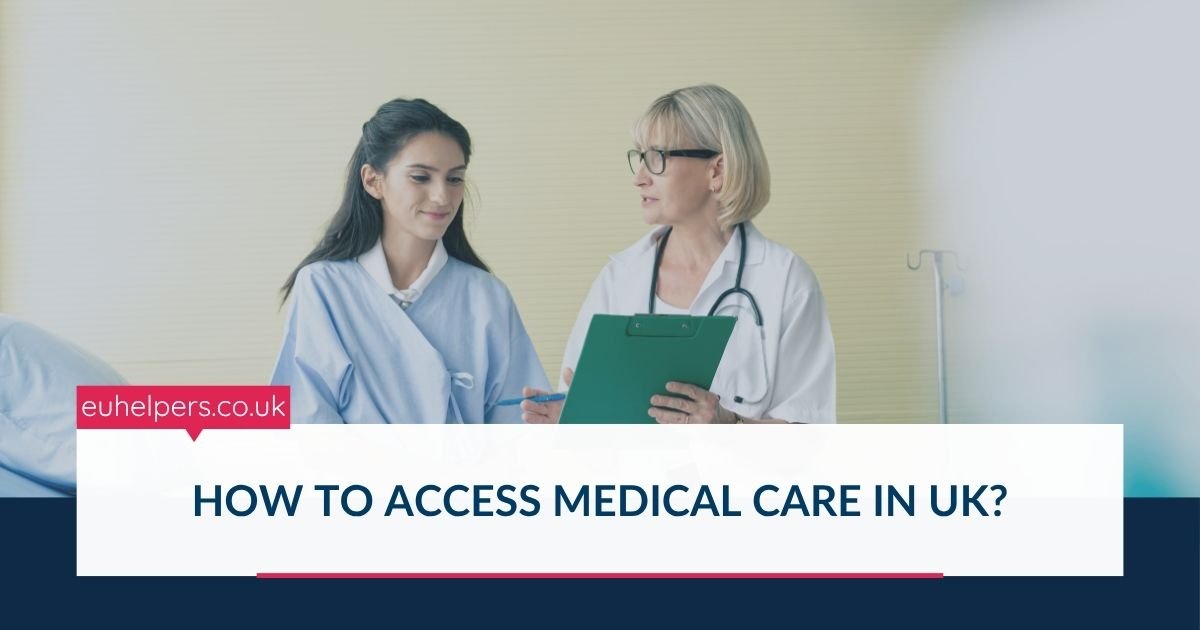Accessing healthcare in the United Kingdom as a foreigner is relatively straightforward, but it largely depends on your immigration status, the length of your stay, and whether you're coming from a country with a reciprocal healthcare agreement with the UK. The UK’s healthcare system is mainly delivered by the National Health Service (NHS), which provides publicly funded medical services to residents. Here's a comprehensive guide on how foreigners can access medical care in the UK.
1. Understanding the UK Healthcare System
The NHS is the UK’s publicly funded healthcare provider, offering most medical services free at the point of use to UK residents. Foreigners can access NHS services under specific conditions, while private healthcare is also available for those who wish to avoid waiting times or require specialist services.
2. Healthcare Access Based on Visa and Residency Status
Short-Term Visitors (Tourists and Business Travelers)
-
You are not entitled to free NHS care except for emergency treatment in an Accident & Emergency (A&E) department.
-
GP consultations, prescriptions, non-urgent treatments, and hospital stays will likely incur charges.
-
It's strongly advised to take out travel or health insurance that covers medical expenses while in the UK.
Students
-
If you're a student staying in the UK for more than six months, you must pay the Immigration Health Surcharge (IHS) as part of your visa application.
-
Once paid, you gain full access to NHS services, including general practitioners (GPs), emergency care, mental health support, and maternity care.
-
Students staying for less than six months should have private health insurance.
Temporary Workers and Other Visa Holders
-
If your visa is for more than six months, you are required to pay the IHS.
-
After payment, you are entitled to comprehensive NHS care without additional charges (except for some services like prescriptions, dental, and optical care).
-
Short-term visa holders (less than six months) must rely on private health insurance or pay for NHS services.
EU/EEA and Swiss Nationals
-
If you're a visitor from the EU/EEA or Switzerland, you should bring a valid European Health Insurance Card (EHIC) or Global Health Insurance Card (GHIC).
-
These cards may allow access to some NHS services for free or at a reduced cost.
-
Post-Brexit, the rules may vary, so always check the latest guidance based on your country of origin.
3. Registering with a General Practitioner (GP)
If you’re staying in the UK for an extended period (e.g., as a student, worker, or resident), it’s important to register with a GP (family doctor):
-
Find a local GP practice accepting new patients.
-
Provide identification and proof of address.
-
Once registered, you can access non-emergency healthcare services such as check-ups, vaccinations, and referrals to specialists.
4. Emergency Medical Services
-
A&E departments provide emergency medical treatment to everyone, regardless of nationality or visa status, free of charge.
-
For urgent but non-life-threatening issues, you can call NHS 111 for medical advice and guidance.
-
In life-threatening emergencies, dial 999 for an ambulance.
5. Accessing Private Healthcare
Foreigners who prefer faster service or more options may choose to use private healthcare providers. Key points include:
-
Services must be paid for out of pocket or covered by private insurance.
-
Many private clinics operate in major cities and offer quick access to specialists and diagnostics.
-
Some foreigners use international health insurance plans that are accepted by UK private providers.
6. Costs Not Covered by NHS (Even for Eligible Patients)
Regardless of your eligibility for NHS care, some services may require co-payments:
-
Prescriptions: A standard charge per item (though some groups, like students or low-income individuals, may be exempt).
-
Dental and optical services: Generally require a fee, even for NHS patients.
-
Vaccinations for travel: Not always covered by the NHS.
While the UK offers a robust public healthcare system, your access to it as a foreigner depends on your visa, length of stay, and insurance coverage. Long-term residents, students, and certain visa holders can enjoy full NHS benefits by paying the Immigration Health Surcharge. Short-term visitors, however, should secure private health insurance to cover any medical expenses. By understanding your entitlements and planning ahead, you can ensure safe and affordable access to medical care during your stay in the UK.

